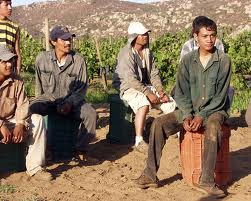One of the benefits of a federalist system is the opportunity of states to experiment with policies (such as health care) and observe the outcome. It also gives us a chance to see what does not work.
Victor Davis Hanson writes in The National Review an interesting observation of the state of California’s policies in Two Californias (12/15/2010). California has high taxes, generously funded and extensive public sector unions (with poorly funded and substantial pension benefits), liberal social benefits, and a very open immigration policy. Policies that were tolerable during stronger economic times have become a disastrous liability today.
Some may see Hanson’s observation as anti-immigrant; I do not. I support immigration. The problem he alludes to is a natural economic consequence of the law being selectively enforced while unaffordable benefits are being lavished upon select groups. This would be a problem whether the immigrants were legal or illegal. Onerous taxes and regulations are driving producers and taxpayers out of the state and generous social benefits are attracting the less productive in.
Excerpts:
In two supermarkets 50 miles apart, I was the only one in line who did not pay with a social-service plastic card (gone are the days when “food stamps” were embarrassing bulky coupons). But I did not see any relationship between the use of the card and poverty as we once knew it: The electrical appurtenances owned by the user and the car into which the groceries were loaded were indistinguishable from those of the upper middle class.
We may speak of the richness of “diversity,” but those who cherish that ideal simply have no idea that there are now countless inland communities that have become near-apartheid societies, where Spanish is the first language, the schools are not at all diverse, and the federal and state governments are either the main employers or at least the chief sources of income — whether through emergency rooms, rural health clinics, public schools, or social-service offices.
I note these vast transformations over the last 20 years that are the paradoxical wages of unchecked illegal immigration from Mexico, a vast expansion of California’s entitlements and taxes, the flight of the upper middle class out of state, the deliberate effort not to tap natural resources, the downsizing in manufacturing and agriculture, and the departure of whites, blacks, and Asians from many of these small towns to more racially diverse and upscale areas of California.
How odd that we overregulate those who are citizens and have capital to the point of banishing them from the state, but do not regulate those who are aliens and without capital to the point of encouraging millions more to follow in their footsteps. How odd — to paraphrase what Critias once said of ancient Sparta — that California is at once both the nation’s most unfree and most free state, the most repressed and the wildest.



Recent Comments